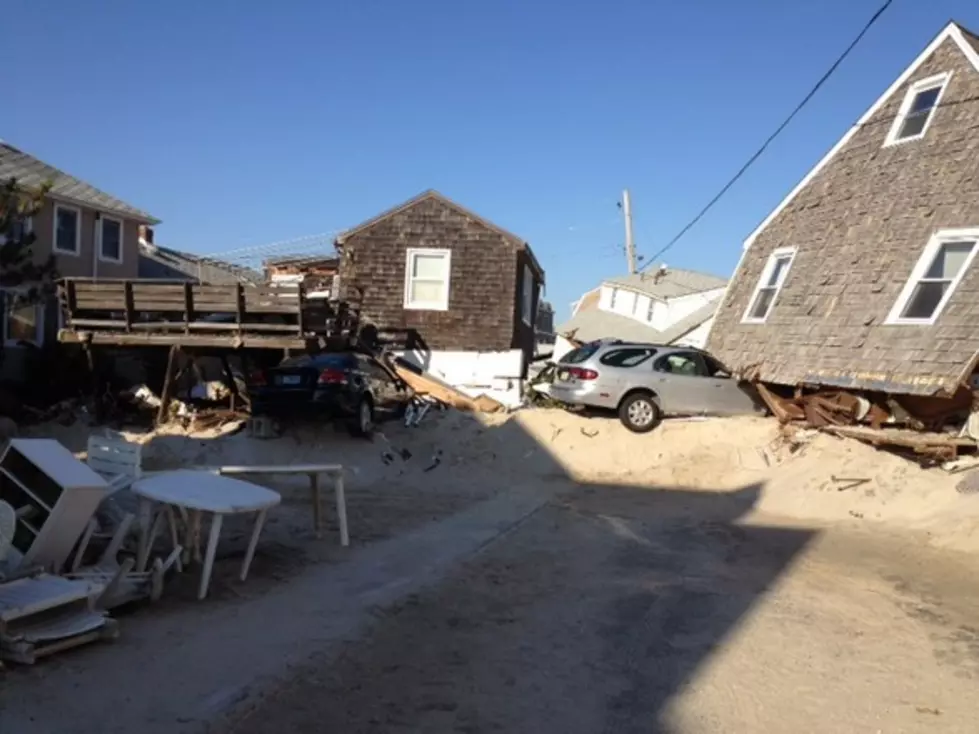
Lawmakers Push to Delay Huge Flood Insurance Hikes
A bipartisan group of lawmakers Tuesday unveiled legislation that would delay for about four years several changes to the federal government's flood insurance program that are threatening to sock thousands of people with unaffordable premium hikes.
The move comes as the government is beginning to implement a significant overhaul of the much-criticized program. That overhaul passed last year with sweeping support. The revamped program was backed by both liberals and tea party conservatives but has caused a panic in places like Staten Island, N.Y., and the New Jersey coast and in flood-prone areas of Louisiana, Mississippi and Florida, where higher rates threaten to push some people out of their homes.
Some of the most ardent supporters of delaying the premium increases are conservative Republicans from Southern states, where the new rules have sent some home values plummeting because of uncertainty over insurance rates and because subsidized rates can't be passed along to buyers. New flood maps threaten to saddle some homeowners who are paying a few hundred dollars a year now with annual premiums of more than $20,000.
"This is a real threat to the economic well-being of many communities," said Sen. Mary Landrieu, D-La. "There is no state that is exempt from this challenge."
Last year's legislation promises premium increases to 1.1 million homeowners who've received subsidized, below-risk coverage and could sock even more homeowners whose homes met older building standards or were deemed at lower risk under previous flood maps. Under the old rules, they could retain their old rates since they followed the rules when they bought or built their home, but they will soon lose those "grandfathered" rates under the new law.
"They have followed the rules. They built to the right elevation when they built," said Sen. David Vitter, R-La. "And yet, through no fault of their own they are facing not just rate increases to make the system solvent, but literally in some cases unaffordable rate increases that could throw them out of their homes."
"It has dried up the real estate market," Sen. Bill Nelson, D-Fla.
The new legislation, unveiled Tuesday at a Capitol Hill news conference, would delay the new rates for people purchasing homes from someone who currently has a subsidized policy or people who face higher rates when flood maps are updated. People with second homes or whose property has repeatedly been flooded would still have to pay the higher rates, which are scheduled to rise by 25 percent a year until their premiums reflect the true risk of flooding.
Last year's law protected subsidies for people who receive them if their houses hadn't been recently flooded. The new legislation would allow them to transfer the subsidy when they sell their home, thereby propping up home values.
Sponsors of the bill included Democratic Sens. Bob Menendez of New Jersey and Landrieu, as well as Republican Sens. Johnny Isakson of Georgia and John Hoeven of North Dakota. Rep. Maxine Waters, D-Calif., who co-wrote last year's legislation, is also on board.
It's unclear whether the drive to delay implementation of the law will succeed. Backers of the delay won an impressive, bipartisan 281-146 House vote earlier this year on an amendment to a spending bill that would postpone some of the premium increases. But conservative groups are against the idea, and top House and Senate leaders have both been silent about it.
Sen. Charles Schumer, D-N.Y., a member of the Democratic leadership, predicted the problems in the flood program would be addressed relatively soon. Rep. Bill Cassidy, R-La., said he's met with No. 2 House Republican Eric Cantor of Virginia and feels "maybe we can pull this together." Cassidy said Cantor "did not commit, but he's at least open to it, understanding that this is an issue affecting many middle-class families."
The flood insurance program has long offered below-cost rates for homeowners in flood zones and has racked up about $25 billion in red ink since its creation in 1968.
It has been criticized for repeatedly paying off homeowners whose houses get flooded every few years. The flood insurance program collects $3.5 billion in premiums each year, but the Federal Emergency Management Agency, which runs it, says $1.5 billion more is required from subsidized policyholders to put it on sound financial footing as required by last year's changes.
The new legislation also requires FEMA to conduct an overdue study about the affordability of imposing risk-based rates on homeowners and directs the agency to propose ways to tackle affordability issues.
(Copyright 2013 by The Associated Press. All Rights Reserved.)
More From New Jersey 101.5 FM









